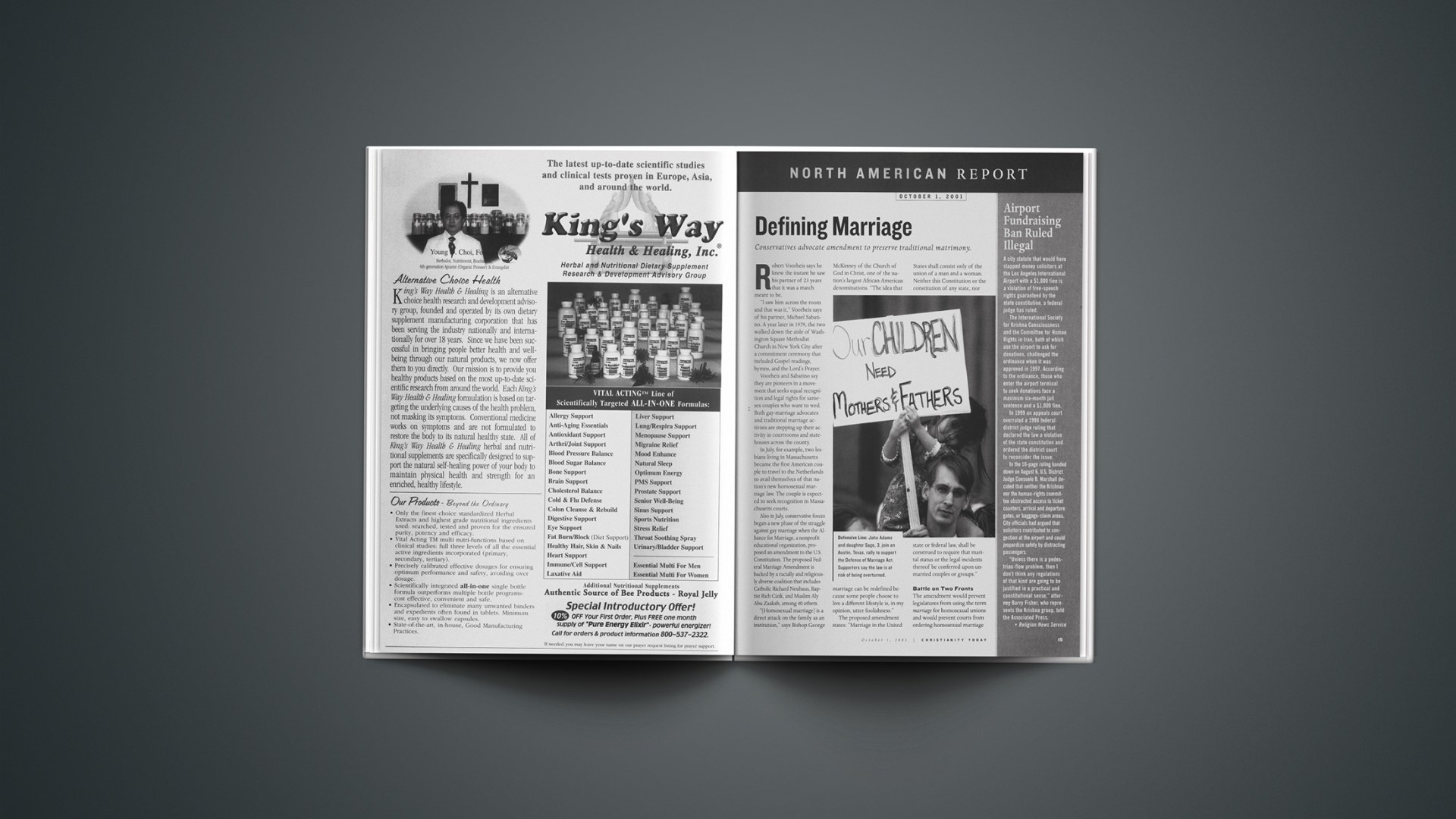The International Society for Krishna Consciousness and the Committee for Human Rights in Iran, both of which use the airport to ask for donations, challenged the ordinance when it was approved in 1997. According to the ordinance, those who enter the airport terminal to seek donations face a maximum six-month jail sentence and a $1,000 fine.
In 1999 an appeals court overruled a 1998 federal district judge ruling that declared the law a violation of the state constitution and ordered the district court to reconsider the issue.
In the 10-page ruling handed down on August 6, U.S. District Judge Consuelo B. Marshall decided that neither the Krishnas nor the human-rights committee obstructed access to ticket counters, arrival and departure gates, or baggage-claim areas. City officials had argued that solicitors contributed to congestion at the airport and could jeopardize safety by distracting passengers.
“Unless there is a pedestrian-flow problem, then I don’t think any regulations of that kind are going to be justified in a practical and constitutional sense,” attorney Barry Fisher, who represents the Krishna group, told the Associated Press.
Copyright © 2001 Christianity Today. Click for reprint information.
Related Elsewhere
In 1992, the International Society for Krishna Consciousness took a similar ban by the Port Authority of New York and New Jersey to the Supreme Court. The ban was upheld.ReligiousTolerance.com has a page on Krishna beliefs, practices, and history.
The Hare Krishna Index, Web site for the International Society for Krishna Consciousness, is a comprehensive listing of all web sites of the Hare Krishna movement.










